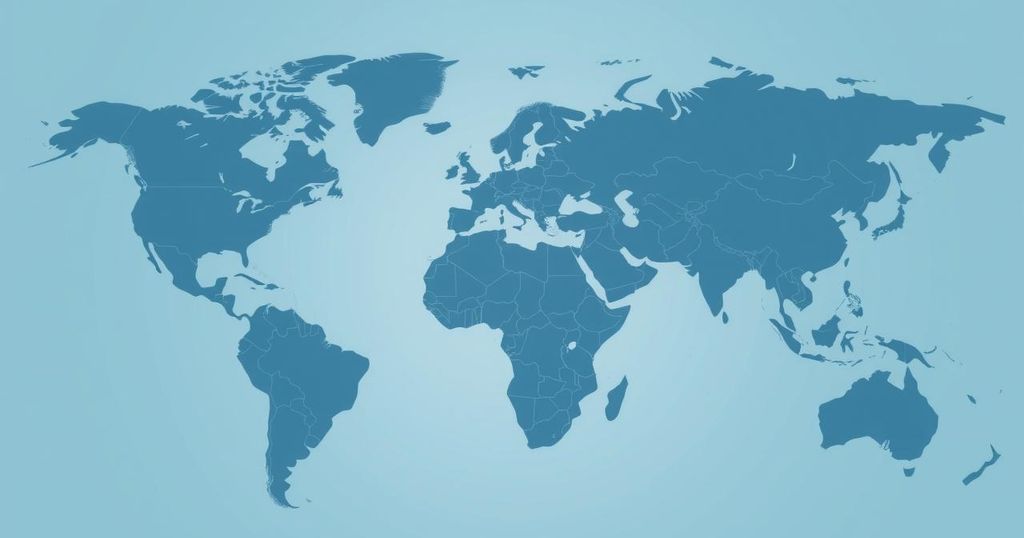Putin’s World Shrinks: As Ukraine Becomes Russia’s Afghanistan, Allies Walk Away

- The war in Ukraine is causing a diplomatic crisis for Russia.
- Old allies are drifting away, leaving Moscow increasingly isolated.
- Armenia has walked away from the CSTO, shaking its bond with Russia.
- Finland and Sweden’s NATO membership marks a shift in Northern Europe.
- Central Asian nations are forging new alliances beyond Russia’s influence.
Diplomatic Ties Eroding for Russia Amidst Ongoing Conflict
The ongoing conflict in Ukraine is entering its third year, and the impacts are becoming increasingly clear beyond just the battlefield. This war, initially heralded by the Kremlin as a show of might, is now eroding the trust and camaraderie that once linked Russia with its allies. The stark reality is that Vladimir Putin faces not just military setbacks but a diplomatic implosion, one that echoes America’s own challenging experience in Afghanistan, but with a harsher, more isolating environment for Moscow. Old friends of Russia are growing quiet, and the sound of falling flags of loyalty is replaced by an unsettling silence as new alliances form elsewhere.
Syria: A Test of Russia’s Waning Influence
Syria, once a cornerstone of Russia’s foreign policy success, illustrates this disintegration of alliances vividly. The Russian intervention during the Syrian civil war in 2015 provided crucial support for Bashar al-Assad, ensuring his regime’s survival and granting Moscow strategic military footholds in the region. However, as the situation in Ukraine has worsened, Russia’s ability to assist Assad has diminished significantly. With Russian forces overstretched, important allies like Assad are left vulnerable, resulting in a cautious new reality for Russia’s strategic ambitions which appear increasingly out of reach, while Assad’s fortunes take a turn for the worse.
Armenia’s Shift: Moving Away from Moscow
Armenia’s relationship with Russia took a drastic turn as well. Traditionally, Armenia relied on Moscow to defend against threats, particularly from Azerbaijan. Yet by 2023, the Kremlin’s promises had turned hollow, with Russian peacekeepers failing to act as violent conflicts erupted in the Nagorno-Karabakh region. As this trust eroded, Armenia began distancing itself from Russia, culminating in its departure from the CSTO – a defense pact that was supposed to solidify its bond with Moscow. This move not only weakens Russia’s standing in the Caucasus but highlights the fragility of alliances established on shaky ground.
Northern Europe Repositions Itself against Russia
Meanwhile, Finland and Sweden, polar opposites to NATO’s expansion narrative pushed by Russia, took a significant turn by joining the alliance. Initially, the Kremlin believed its aggressive actions in Ukraine would deter these countries from NATO membership. Instead, it sparked a reactionary wave, shifting from neutrality to active defense as both Nordic nations assessed their security vulnerabilities. The narrative of an encroaching NATO, which Russia sought to resist, has ironically prompted further NATO encirclement and increased tension along its borders.
Central Asia: Shifting Alignments and New Influences
Central Asia also presents challenges for Putin as former Soviet states are pivoting towards outside partners. With countries like Kazakhstan, Uzbekistan, and Kyrgyzstan looking towards Europe, China, and Turkey for new treaties and economic connections, the influence Russia historically enjoyed is waning. The shift to new trade agreements and infrastructural projects is evident, as countries strengthen ties with the West, diminishing Moscow’s once firm grip over this region—and while Russia is embroiled in Ukraine, these nations are moving on.
Iran’s Disappointment Highlights Russia’s Isolation
Iran, long perceived as a reliable ally, is growing increasingly isolated in its affiliation with Russia. The Islamic Republic provided Russia with drone technology critical in its war effort. Yet, when Iran found itself under Israeli and American military scrutiny, Moscow’s tepid response proved unsatisfactory. The loyalty Iran once expected from Russia has become a one-sided affair, filled with longing for support that remains unreciprocated, deepening the fissures in their alliance.
The Decline of Russian Influence in the Global Arena
From the turmoil in Syria to the shifting allegiances in Armenia, from the Nordic nations embracing NATO to the pivoting Central Asian republics, the evidence is mounting. Russia’s sphere of influence, once considered a bastion of power, is now retreating. The lonely silence that envelops the Kremlin is telling; it signals not just a war, but a quiet and profound collapse of strategic partnerships. As names drop one by one from Russia’s friendship list, the future of the Kremlin’s dominance appears increasingly uncertain.
The ongoing war in Ukraine has resulted in not only military strife, but a dramatic collapse of Russia’s diplomatic relationships. As traditional allies like Syria, Armenia, and even Iran begin to distance themselves, and as new players embrace NATO, the Kremlin’s once solid hold is slowly slipping. The implications of these changes could signal a significant shift in the global balance of power, underscoring the vulnerabilities in Russia’s geopolitical strategies.







